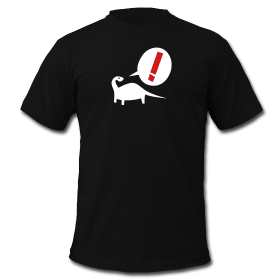 Organic strawberries. Photo by VancityAllie.
Organic strawberries. Photo by VancityAllie.- In case you missed it. I’m starting a new blogging gig, and here’s my inaugural post.
- We’re finally done calling it “junk DNA.” Or are we? A user’s guide to the user’s guide to the human genome.
- Science ruins everything. Adorable kid cavorting with marmots isn’t really that special.
- Not so much a golden, as a gold-plated, ring. Tenure isn’t as great/terrible as you’ve been told.
- Worse than we thought. Jonah Lehrer’s journalistic misdeeds, enumerated.
- In which a debate arises … organically. A new study finds that organic vegetables aren’t any more nutritious than non-organics—but is that the right question to ask?
- Who says it’s compromising? More on the question of whether women’s wider pelvises are a compromise between locomotion and childbirth.
- A Christian perspective. Why it doesn’t make sense to say you “believe” in evolution.
- Because Bob knows, you can’t just ask. Using a Markov model to determine whether your prof’s in a romantic relationship.
- Money talks. How Rachel Carson’s book Silent Spring was immediately politicized, even though she didn’t do any politicizing.
- If they’re monogamous Finnish farmers. Do human women have an evolutionary conflict with their mothers-in-law?
- In llamas! Researchers identify a component of semen that may help induce ovulation.
- Sampling matters. A new study of kids raised by lesbian parents studies actual lesbian households, finds out their kids are doing great.
◼











